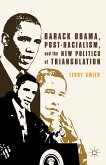First published in 1998. Explores the concept of "race" - The term "race," which originally denoted genealogical or class identity, has in the comparatively brief span of 300 years taken on an entirely new meaning. In the wake of the Enlightenment it came to be applied to social groups. This ideological transformation coupled with a dogmatic insistence that the groups so designated were natural, and not socially created, gave birth to the modern notion of "races" as genetically distinct entities. The results of this view were the encoding of "race" and "racial" hierarchies in law, literature, and culture. How "racial"categories facilitate social control - The articles in the series demonstrate that the classification of humans according to selected physical characteristics was an arbitrary decision that was not based on valid scientific method. They also examine the impact of colonialism on the propagation of the concept and note that "racial" categorization is a powerful social force that is often used to promote the interests of dominant social groups. Finally, the collection surveys how laws based on "race" have been enacted around the world to deny power to minority groups. A multidisciplinaryresource- This collection of outstanding articles brings multiple perspectives to bear on race theory and draws on a wider ranger of periodicals than even the largest library usually holds. Even if all the articles were available on campus, chances are that a student would have to track them down in several libraries and microfilm collections. Providing, of course, that no journals were reserved for graduate students, out for binding, or simply missing. This convenient set saves students substantial time and effort by making available all the key articles in one reliable source.
Dieser Download kann aus rechtlichen Gründen nur mit Rechnungsadresse in A, B, BG, CY, CZ, D, DK, EW, E, FIN, F, GR, HR, H, IRL, I, LT, L, LR, M, NL, PL, P, R, S, SLO, SK ausgeliefert werden.









